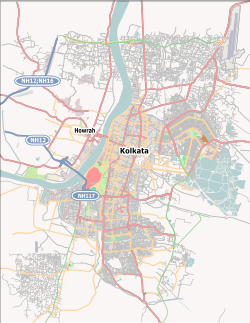 Acharya Jagadish Chandra Bose College Campus | |
Other name | AJC Bose College |
|---|---|
Former names | Birla College Of Science and Education |
Motto in English | Education for All |
| Type | Public |
| Established | 1968 |
Academic affiliations | University of Calcutta, NAAC, UGC |
| President | Dr. Debasis Manna |
| Principal | Dr. Samiran Mandal |
| Location | Kolkata , West Bengal , 700020 , India 22°32′30.74″N88°20′58.77″E / 22.5418722°N 88.3496583°E |
| Campus | Urban, 0.6415 acre |
| Website | http://www.ajcbosecollege.org/ |
Acharya Jagadish Chandra Bose College is a public undergraduate degree college in Kolkata, West Bengal. This college previously known as Birla College Of Science and Birla College of Education were established in 1968 as two separate Institutions. In 1969 the two Institutions were amalgamated into one College under the name of Birla College Of Science and Education. With effect from the 1st July 1987, it is renamed as Acharya Jagadish Chandra Bose College, by the name of great scientist, Acharya Jagadish Chandra Bose.

